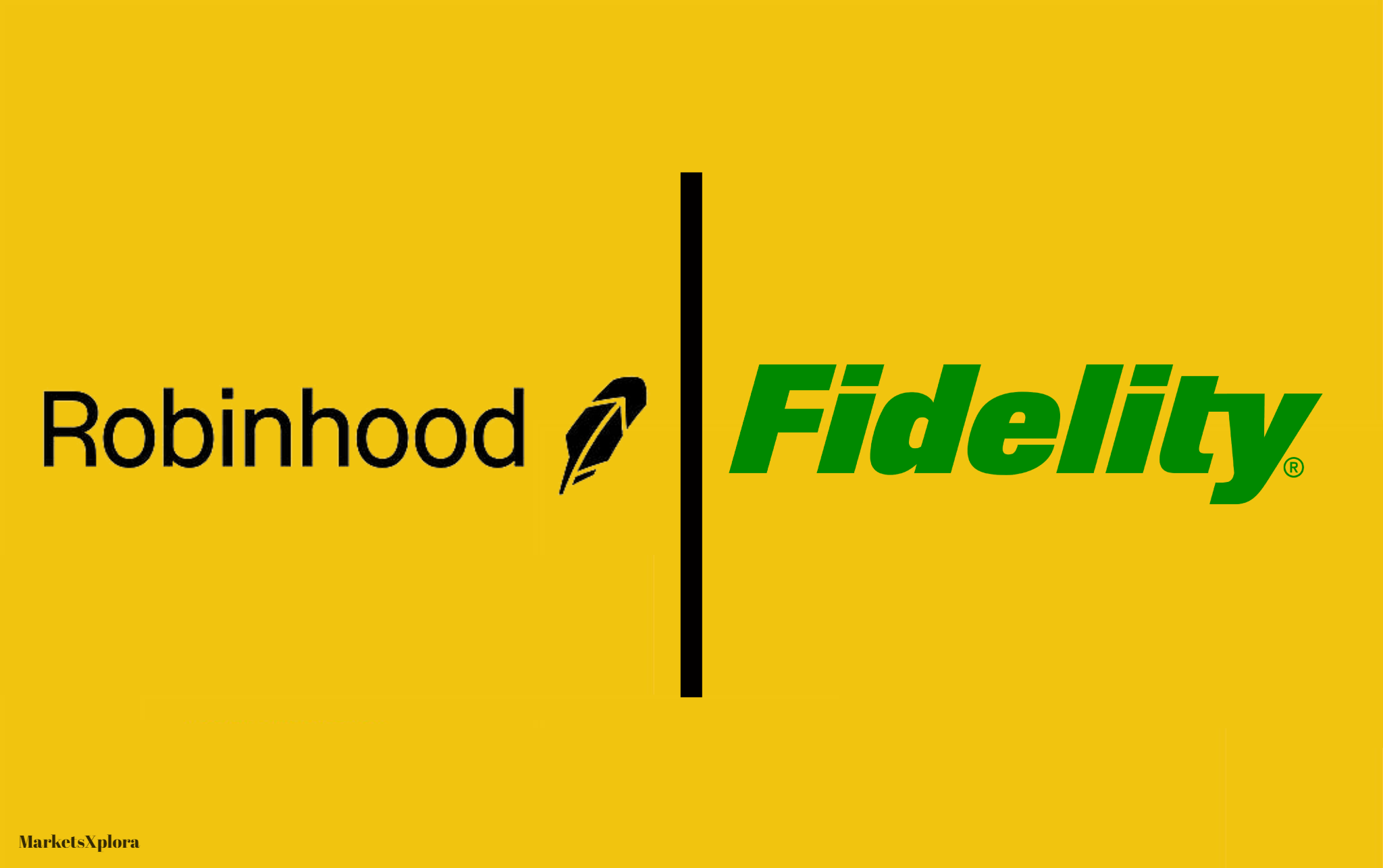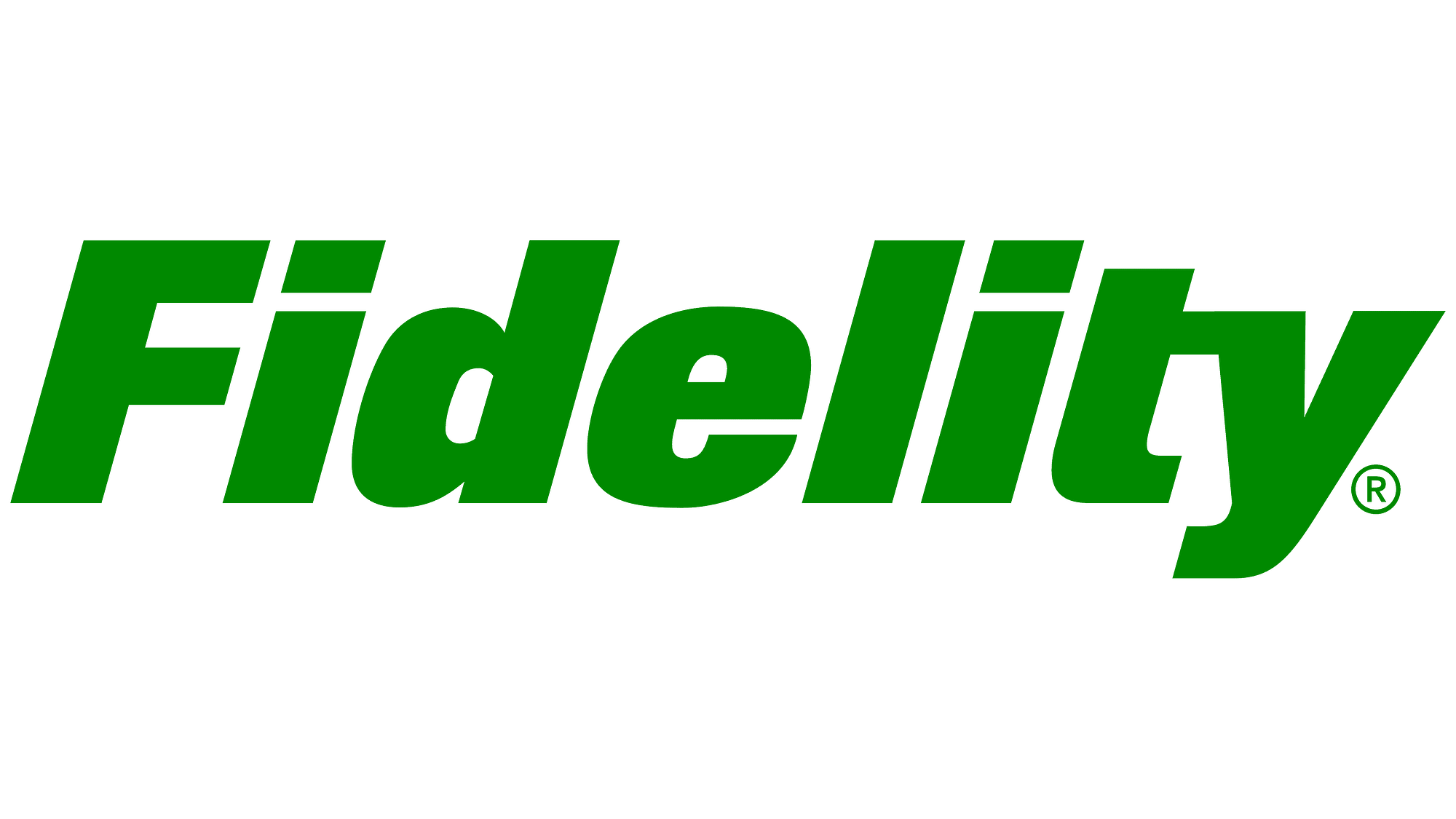
Robinhood vs Fidelity – two names that constantly pop up when you are searching for platforms to invest your hard-earned money.
Both promising to help grow your nest egg, but through very different approaches.
So which one deserves your money? This 2024 comparison guide breaks down all the details to help you decide between Fidelity and Robinhood. We’re talking:
- Account types and requirements for opening
- Investment product offerings and trading capabilities
- User experience – mobile apps, research tools, ease-of-use
- Pricing structures and fees involved
- Security, regulation and investor protection measures
- Specialized features like cash management, IPO access, advisory services
Ready to cut through the confusion and zero in on the platform that fits your specific needs? Let’s go.
Robinhood vs Fidelity – Key Facts
 |
 |
|
|---|---|---|
Year Founded |
2013 |
1946 |
Founders/CEOs |
Vlad Tenev, Baiju Bhatt |
Founded by Edward C. Johnson II, Current CEO is Abigail Johnson |
Headquarters |
Menlo Park, California |
Boston, Massachusetts |
Total Client Assets |
$190 billion* |
$13.7 trillion* |
Number of Retail Accounts |
22.5 million* |
50 million* |
Key Offerings |
Commission-free trading, Fractional shares, Options, Crypto |
Full-service brokerage, IRAs, Mutual funds, Advisory services |
*Data as of late 2024
Account Types and Requirements
Individual Accounts:
- Both Robinhood and Fidelity offer individual taxable accounts.
Joint Accounts:
- Both allow opening joint accounts for couples/partners to invest together.
Retirement Accounts:
- Fidelity offers a wide range – Traditional/Roth IRAs, 401(k)s, 403(b)s etc.
- Robinhood currently only has Traditional and Roth IRAs.
Account Minimums & Fees:
- Robinhood has no account minimums or annual fees.
- Fidelity requires $0-$25 minimums depending on account type. Some accounts have annual fees.
Account Opening Process:
- Both have user-friendly online account opening processes.
- Fidelity may require more documentation, especially for retirement accounts.
Trading & Investment Capabilities
Asset Classes:
- Robinhood – Stocks, Crypto, ETFs, Options
- Fidelity – Stocks, ETFs, Options, Mutual Funds, Bonds, Fixed Income
Order Types:
- Both offer Market, Limit, Stop orders
- Fidelity also has advanced order types like Trailing Stop, Conditional orders
Margin/Leverage:
- Robinhood offers margin trading through Robinhood Gold
- Fidelity has margin capabilities with stricter requirements
Short Selling:
- Not available on Robinhood
- Possible on Fidelity with a margin account
Fractional Shares:
- Robinhood allows fractional share purchases for stocks/ETFs
- Not available on Fidelity’s main platform yet
Robo-Advisory:
- Robinhood has no robo-advisory services
- Fidelity offers robo-advisory through Fidelity Go
User Interface and Experience

Platform Design & Navigation:
- Robinhood has a clean, minimalist design aimed at simplicity
- Fidelity’s platform is more comprehensive but can seem cluttered
Charting & Analysis Tools:
- Robinhood has basic candlestick charts with limited indicators
- Fidelity provides advanced charting, technical studies, research reports
Research & Education:
- Robinhood has limited research/education resources
- Fidelity offers extensive research, learning courses, webinars
Mobile App:
- Robinhood has an easy-to-use, highly-rated mobile app
- Fidelity’s mobile apps are functional but rated lower
Customization:
- Robinhood has minimal customization options
- Fidelity allows workspace customization, watch lists, alerts
Fees and Pricing

Commission Fees:
- Both Robinhood and Fidelity have $0 commission for stocks/ETFs
- Fidelity charges $0.65 per options contract
Account Fees:
- Robinhood has no account, inactivity or annual fees
- Some Fidelity accounts have annual fees up to $50
Other Fees:
- Transfer/Wire Fees – Robinhood $0, Fidelity $10-$75
- Fidelity charges fees for paper statements, rejected payments, etc
Advisory Fees:
- Robinhood has no advisory services
- Fidelity Go has 0.35% annual advisory fee
Security and Regulation

Data Encryption & Cybersecurity:
- Both use data encryption and have cybersecurity measures in place
- But details on specific protocols are not fully disclosed
Regulatory Compliance:
- Robinhood and Fidelity are members of FINRA & SIPC
- Both are regulated by SEC and must comply with its rules
Investor Protection:
- Accounts at both brokers are insured up to $500,000 by SIPC
- Plus additional private insurance protection
Two-Factor Authentication:
- Robinhood and Fidelity offer optional 2FA for added security
- Other account safeguards like biometrics, security questions
Customer Support
Support Channels:
- Robinhood – Email, Phone, Virtual Agent
- Fidelity – Phone, Chat, Branches, International Support
Responsiveness & Quality:
- Robinhood has faced criticism for poor customer service
- Fidelity generally praised for responsive, knowledgeable support
User Reviews:
- Robinhood has mixed-to-negative reviews for customer support
- Fidelity has mostly positive reviews for client experience
Self-Help Resources:
- Robinhood has limited FAQs, no robust education center
- Fidelity provides extensive learning resources, webinars
Specialized Features and Offerings
Robinhood
- Cash Management Account:
- Offers a debit card and earns interest on cash balances
- Enables easy spending and earning interest on uninvested funds
- IPO Access:
- Robinhood provides access to participate in Initial Public Offerings
- A unique offering for its users to get allocation in new stock issuances
- Recurring Investments:
- Allows setting up recurring investments in stocks and fractional shares
- Helps build investments automatically through dollar-cost averaging
- Robinhood Gold:
- Paid premium tier that allows margin trading
- Offers increased buying power and instant settlement of funds
Fidelity
- Managed Accounts & Advisory Services:
- Offers various advisory accounts like Portfolio Advisory Service
- Provides professional investment management for a fee
- Workplace Retirement Plans:
- Comprehensive suite for employer-sponsored retirement plans
- Includes 401(k), 403(b), profit sharing, pension accounts
- Banking Services:
- Provides checking, savings, CDs, credit cards
- Enables integrated banking and investing from one platform
- Annuities & Insurance Products:
- Offers annuities for retirement income
- Provides life insurance and other insurance solutions
User Profiles and Recommendations
Beginner Investors and Traders
- Ease of Use: Robinhood’s simple interface and streamlined design make it very beginner-friendly.
- Educational Resources: Fidelity offers more extensive learning materials, tools, and webinars.
Recommendation: If you’re an absolute beginner, I’d recommend starting with Robinhood’s easy-to-use app. Once you gain some experience, consider transitioning to Fidelity to take advantage of their educational resources as your needs grow.
Active Traders and Day Traders
- Advanced Tools: Fidelity provides superior charting, technical studies, order types for active traders.
- Margin & Leverage: Both allow margin trading, but Robinhood’s Gold has lower requirements.
Recommendation: For active and day trading, I’d suggest going with Fidelity. Their platform is packed with advanced tools, studies and order types that active traders need. The margin requirements are also more suited for experienced traders.
Long-term Investors and Retirement Savers
- Account Types: Fidelity has a full suite of retirement accounts like IRAs and 401(k)s.
- Research: Fidelity offers more comprehensive research and planning tools for long-term investing.
Recommendation: If you’re investing for long-term goals like retirement, I highly recommend choosing Fidelity. Their variety of retirement accounts and in-depth research will be invaluable for your long-term planning.
Wealth Management and Advisory Clients
- Managed Accounts: Fidelity has multiple professionally managed account options like PAS.
- Planning Support: Fidelity advisors provide holistic financial planning and wealth management.
Recommendation: For those seeking dedicated advisory services and wealth management, Fidelity is the clear choice for you. Their managed accounts and advisor support are geared towards comprehensive financial planning.
Fidelity vs Robinhood – Pros and Cons
Robinhood
Pros |
Cons |
|---|---|
Easy to use, beginner-friendly interface |
Limited investment options (no mutual funds, bonds) |
No account minimums or trading commissions |
Basic research and educational resources |
Ability to buy fractional shares |
No robo-advisory or professional wealth management |
Access to IPOs |
Faced criticism over customer support quality |
Fidelity
Pros |
Cons |
|---|---|
Wide range of account types and investment products |
Some account types have annual fees or minimums |
Robust research, tools, and educational resources |
Trading commissions for options contracts |
Managed accounts and advisory services available |
|
Generally positive reviews for customer service |
|
Integrated banking and retirement planning capabilities |
Conclusion – Which Should You Choose: Robinhood or Fidelity?
For new investors just starting, Robinhood’s user-friendly app could be a great way to get your feet wet before transitioning to a more full-featured platform like Fidelity. Active traders and those seeking advanced tools and margin capabilities would likely prefer Fidelity’s robust offering.
Long-term investors, retirement savers, and those desiring advisory support should strongly consider Fidelity’s extensive services tailored for those needs.
Ultimately, the “best” platform depends on your unique goals, experience level, and investing needs. Don’t simply take my word for it – make sure to thoroughly research, compare, and understand the full capabilities of each platform. Read extensive reviews, talk to current clients, and ensure the platform you choose aligns perfectly with your short and long-term investment plans.

